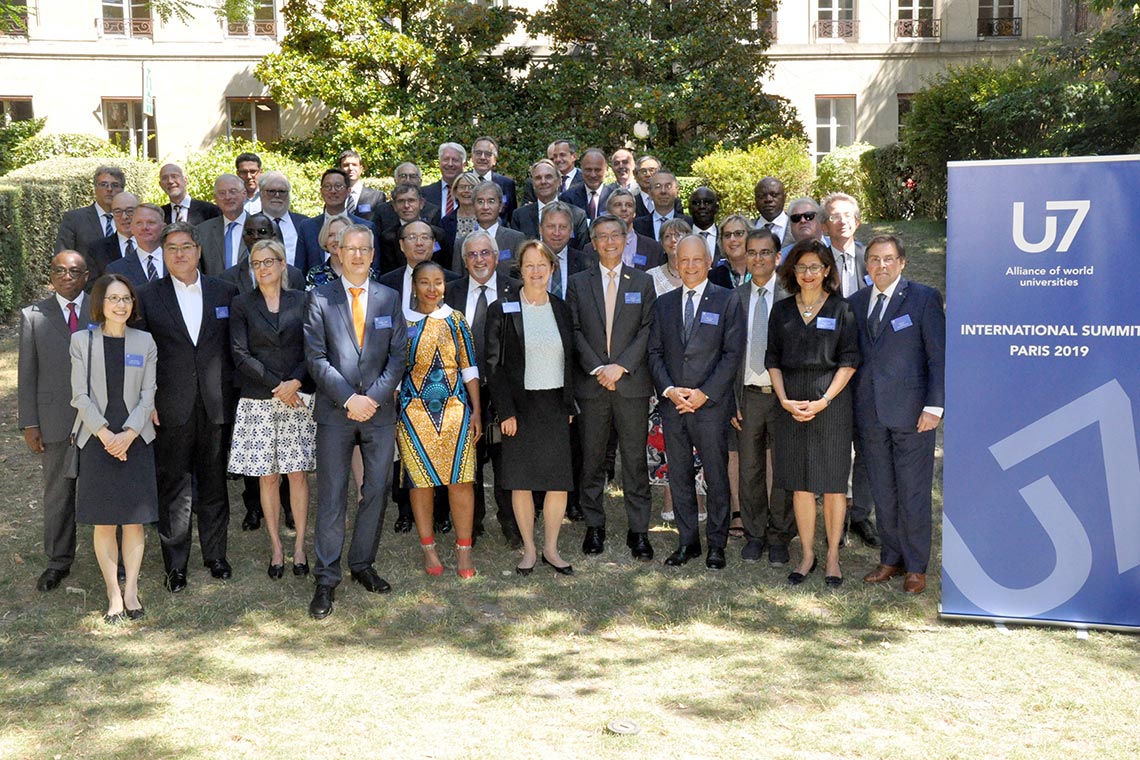Tag: partnership

U of T expert on how corporations are stepping up to tackle crises when governments around the world won’t
Today we’re facing a whole slew of social, economic and environmental crises – gun violence, climate change, gender inequality, job dislocation, food insecurity, plastic pollution and the opioid epidemic, to name just a few.
The responses from governments are often inadequate. Indeed, the problems are so complex that no single sector can address these challenges alone. Policies may not go far enough, or simply cannot address the entire issue. And, as we are seeing in the United States, governments may actually be pulling back on regulations meant to address these crises.

U of T named one of Canada’s Greenest Employers for 2019
The University of Toronto has been recognized as one of Canada’s Greenest Employers in 2019 for the sixth consecutive year.
This designation, issued by editors of the Canada’s Top 100 Employers project at Mediacorp Canada Inc., recognizes employers who are leaders in developing exceptional sustainability initiatives and creating a culture of environmental awareness in their organizations.

With students at the forefront, U of T implements ambitious sustainability plan
Students are at the forefront of the University of Toronto’s efforts – now entering the implementation phase – to make itself a global leader in sustainability education, research and operations.
In its third annual report, the President’s Advisory Committee on the Environment, Climate Change, and Sustainability (CECCS) outlines the concrete steps it’s taking to advance sustainability-related projects and initiatives across the university.
Original article

‘An obligation to fill the vacuum’: U of T President Meric Gertler leads climate change discussion at Paris summit
The University of Toronto – represented by President Meric Gertler – was one of 47 universities that recently met in Paris to reach agreement on how post-secondary institutions can play a leadership role in addressing urgent global issues, from climate change to income inequality.
The group of universities, from 18 countries around the world, belong to the U7+ Alliance that was established by France as a way to dig deeper into the issues to be discussed by world leaders at the upcoming G7 summit in Biarritz.

U of T President Meric Gertler attends global summit of university leaders in Paris
University of Toronto President Meric Gertler is in Paris this week to attend the inaugural summit of the U7 Alliance, a unique international partnership that brings together leading universities to tackle the most pressing global challenges of the day.
The two-day summit, which kicked off today, will see the leaders of over 45 universities – drawn from 21 countries and representing over 2 million students – discuss five major global challenges: climate change and clean energy, inequality and polarization, technological transformation, community engagement and the role of universities in a global world.

EaRTH-focused: U of T-Centennial College partnership to advance cleantech, build ‘vertical farm’
The University of Toronto Scarborough and Centennial College are teaming up to establish the EaRTH District – an initiative aimed at advancing the cleantech sector through research, academic programming and commercialization.
EaRTH, which stands for Environmental and Related Technologies Hub, will be a knowledge and training centre at U of T Scarborough focused on the development of clean technologies.
Among the partnership’s plans: apply innovative technologies to food production in an urban setting through the development of Canada’s first net-zero vertical farm.
